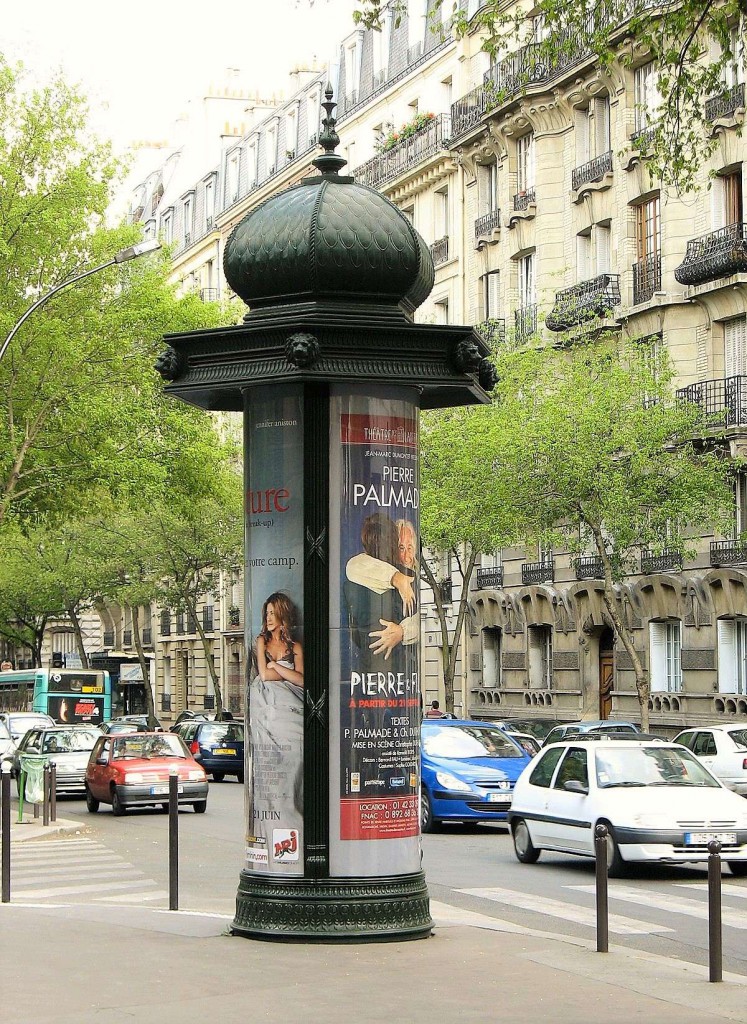
Morris columns, the quintessential Parisian advertising columns found on the pavements throughout the city, were developed by Gabriel Morris in the nineteenth century. By 1900, the city boasted some 200 of these columns; today, there are 550, owned and operated by JCDecaux.
Now, Mecelec Composites, a finalist of the JEC Innovation Awards in the Design & Furniture category, has designed the first mass-produced flax fibre roofs for these 550 Morris columns in Paris – a new sustainable development application on the urban design market.
“This is the first application of flax fibre BMC for mass production. The new solution combines all the advantages of composite materials, lightness and strength, with stringent environmental requirements and is adapted to the safety constraints of this kind of street furniture,” said Bénédicte Durand, Chief Executive Officer at Mecelec Composites.
The dome of the Morris columns is composed of 23 different parts, 14 of which are made from composite materials.
To design the roof, Mecelec Composites developed a new RTM complex and a new BMC material, that is reinforced exclusively with a flax mat. “Today it is the only BMC with a 100% flax fibre reinforcement, which uses a partially recycled ABS resin. It was created specifically for this project and we had to work on the processes in order to adapt them to this new material,” explained Bertrand Vieille, Head of sales.
In the design, Mecelec Composites replaced the bonding process with a time-saving mechanical assembly process, using an invisible fixing system.
Mecelec Composites creates scalable, sustainable and environmentally-friendly street furniture. The Group is committed to developing a sustainable production process and reuses all its waste materials. Its R&D laboratory promotes eco-design with a process of characterisation and mechanical sizing of parts.
“For this project, we imagined, created, produced and delivered a mass-produced composite application with a low environmental impact within less than a year. At the end of its lifecycle, the product completely breaks down, leaving no fibre residue,” Bénédicte Durand concluded.
JEC World, 3 to 5 March 2020, Hall 6, Stand C77, Paris Nord Villepinte
Source
Bioplastics MAGAZINE, 2020-02-03.
Supplier
JCDecaux Group
Mecelec Composites
Share
Renewable Carbon News – Daily Newsletter
Subscribe to our daily email newsletter – the world's leading newsletter on renewable materials and chemicals










